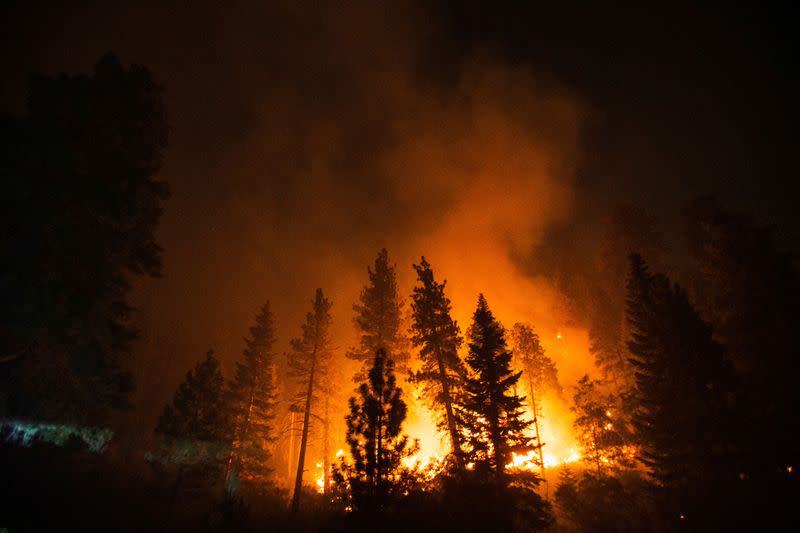Nuclear Litigation: Current Cases And Legal Challenges

Table of Contents
Types of Nuclear Litigation
Nuclear litigation encompasses a broad range of legal actions stemming from the risks and consequences associated with nuclear power and materials. These cases often involve significant scientific and technical complexities, demanding specialized legal expertise.
-
Reactor Accidents and Personal Injury Claims: Cases involving radiation exposure, illness, and property damage following nuclear accidents like Chernobyl or Fukushima are a significant portion of nuclear litigation. These nuclear accident claims often involve numerous plaintiffs seeking compensation for personal injury lawsuits resulting from radiation exposure. The legal battles can be protracted and involve extensive epidemiological studies to establish a causal link between radiation and health problems.
-
Nuclear Waste Disposal Disputes: Nuclear waste disposal presents a major ongoing challenge. Radioactive waste litigation frequently arises from disputes over the safe storage, transportation, and disposal of this hazardous material. These cases often involve environmental law considerations and challenges to government regulations concerning waste management practices. Concerns about groundwater contamination, long-term storage solutions, and the potential for future environmental damage are common themes.
-
Nuclear Plant Decommissioning Issues: Nuclear decommissioning involves the complex and costly process of dismantling and cleaning up nuclear power plants at the end of their operational life. Plant closure lawsuits can arise from disputes over the adequacy of decommissioning plans, liability for environmental remediation, and the financial responsibility for these expensive undertakings. These cases often involve intricate negotiations between plant operators, regulatory agencies, and potentially affected communities.
-
Worker's Compensation Cases: Workers in the nuclear industry face unique occupational hazards. Nuclear worker compensation claims often involve occupational disease lawsuits related to radiation exposure, leading to conditions such as radiation sickness and various cancers. These cases require demonstrating a causal link between the worker's employment and their subsequent health problems.
-
Government Regulation and Licensing Disputes: Nuclear regulatory law plays a central role in nuclear litigation. Licensing disputes frequently occur when individuals, organizations, or other governments challenge government decisions concerning the licensing, operation, or regulation of nuclear facilities. These cases often involve appeals to administrative agencies and courts to ensure environmental permits are properly issued and safety regulations are upheld.
Key Legal Challenges in Nuclear Litigation
Nuclear litigation presents unique legal obstacles demanding specialized expertise. The complexity of the scientific evidence, the long latency periods involved, and jurisdictional issues all contribute to the challenges faced by litigants.
-
Establishing Causation: A major hurdle in many nuclear litigation cases is establishing causation. Proving a direct link between radiation exposure and subsequent health problems can be incredibly difficult, requiring sophisticated epidemiological studies and expert testimony. The effects of radiation exposure can be subtle and difficult to isolate from other potential causes.
-
Long Latency Periods: One of the defining characteristics of nuclear litigation is the existence of long latency periods. The time between radiation exposure and the manifestation of health effects can span decades, making it difficult to connect cause and effect and presenting significant challenges for both plaintiffs and defendants. This long timeframe also impacts the availability of evidence and witness testimony.
-
Scientific Evidence and Expert Testimony: Nuclear litigation heavily relies on scientific evidence and the credibility of expert testimony. Cases often involve complex scientific concepts requiring specialized knowledge of radiation dosimetry, epidemiology, and other relevant scientific fields. The selection and qualification of expert witnesses are crucial to the success of either side.
-
Statutes of Limitations: Navigating statutes of limitations is a critical aspect of nuclear litigation. The time limits for filing lawsuits related to radiation exposure vary considerably depending on jurisdiction and the specific cause of action. Missing these legal deadlines can result in the dismissal of even meritorious claims.
-
Jurisdictional Issues: Jurisdictional issues can complicate nuclear litigation, particularly in cases involving accidents with transboundary impacts. Determining the appropriate court and legal venue for a case, especially those involving international law aspects, requires careful consideration of relevant legal frameworks and treaties.
Recent High-Profile Nuclear Litigation Cases
While specifics of ongoing and sensitive cases are often confidential, reviewing publicly available court records and news reports can offer valuable insights into the current trends in nuclear litigation. For example, cases involving the cleanup of contaminated sites after past nuclear weapons testing or litigation against nuclear power plant operators for accidents or negligence are often closely scrutinized and can serve as precedents for future cases. (Note: This section would ideally contain summaries of several specific, recent cases with proper citations to ensure credibility and SEO benefit).
Conclusion
Nuclear litigation remains a complex and evolving field of law. Understanding the various types of cases, the significant legal challenges involved, and the importance of expert legal counsel is crucial for anyone facing issues related to nuclear litigation. Successfully navigating these complex cases requires a deep understanding of scientific evidence, regulatory frameworks, and specialized legal procedures. If you are involved in a matter relating to nuclear litigation, seeking guidance from an experienced attorney specializing in this area is paramount to protecting your rights and achieving a favorable outcome. Don't hesitate to contact an expert in nuclear accident litigation or nuclear waste litigation to discuss your case.

Featured Posts
-
 Duponts Masterclass Frances Rugby Victory Over Italy
May 01, 2025
Duponts Masterclass Frances Rugby Victory Over Italy
May 01, 2025 -
 France Wins Six Nations Englands Powerful Performance Scotland And Irelands Setbacks
May 01, 2025
France Wins Six Nations Englands Powerful Performance Scotland And Irelands Setbacks
May 01, 2025 -
 Toppins 21 Points Power Colorado Ahead Of Texas Tech Game
May 01, 2025
Toppins 21 Points Power Colorado Ahead Of Texas Tech Game
May 01, 2025 -
 Dragons Den Backs Omnis Innovative Plant Based Dog Food Brand
May 01, 2025
Dragons Den Backs Omnis Innovative Plant Based Dog Food Brand
May 01, 2025 -
 Jnwby Ayshyae Myn Amn Kshmyrywn Kw Ansaf Ky Frahmy Nagzyr
May 01, 2025
Jnwby Ayshyae Myn Amn Kshmyrywn Kw Ansaf Ky Frahmy Nagzyr
May 01, 2025
Latest Posts
-
 Wildfire Gambling A Disturbing Reflection Of Modern Society Los Angeles Focus
May 01, 2025
Wildfire Gambling A Disturbing Reflection Of Modern Society Los Angeles Focus
May 01, 2025 -
 The Growing Trend Of Betting On The Los Angeles Wildfires
May 01, 2025
The Growing Trend Of Betting On The Los Angeles Wildfires
May 01, 2025 -
 Middle Managers Their Vital Contribution To Company Culture And Employee Retention
May 01, 2025
Middle Managers Their Vital Contribution To Company Culture And Employee Retention
May 01, 2025 -
 China Life Profit Rises Investment Resilience Drives Growth
May 01, 2025
China Life Profit Rises Investment Resilience Drives Growth
May 01, 2025 -
 Is Betting On Natural Disasters Like The La Wildfires A Sign Of The Times
May 01, 2025
Is Betting On Natural Disasters Like The La Wildfires A Sign Of The Times
May 01, 2025
